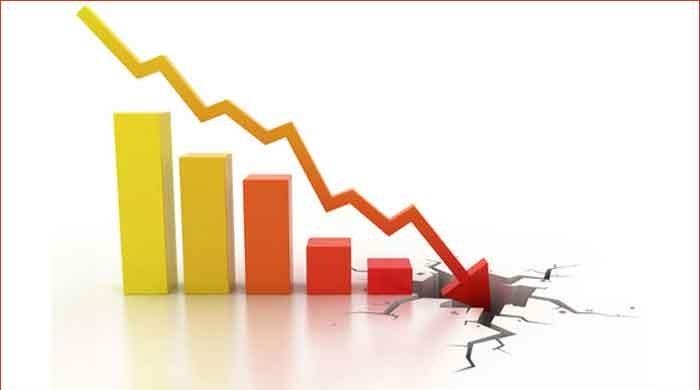Oil price crash to benefit Pakistan’s economy but hit oil companies
3 min read
KARACHI: Oil prices have dropped by more than 30 per cent as OPEC failed to strike a deal with its allies regarding production cuts.
Saudi Arabia has slashed its prices as it is reportedly getting ready to ramp up production, leading to fears of an all-out price war.
WTI crude briefly dropped to below the US$28/bbl (-32%), while Brent crude also plummeted to around US$32/bbl (-29%).
Syed Atif Zafar of Topline brokerage house believe that lower oil prices are a net positive for Pakistan’s macros (especially the external account), as 26 per cent of Pakistan’s imports are oil price driven.
He estimated in its report that on an annual basis, $20/bbl lower oil prices would reduce Pakistan oil import bill by 26% or $3.8-4.2 billion.
On the other hand, the report said, we can potentially see a cumulative reduction in exports and remittances by around $1-2 billion. Hence, on a net basis, Pakistan’s external account could potentially improve by $2.2-2.8 billion (50% of Pakistan Current Account Deficit) due to $20/bbl lower oil prices. Pak-rupee/US dollar to remain stable in the near term, the report added.
On the fiscal side, the report said that we believe lower oil prices will give the government enough fiscal space to sail through at least the next couple of IMF reviews. The government is unlikely to completely pass on the impact of lower oil prices to the consumers, through increase in Petroleum Development Levy (as seen last month).
The government is also likely to pocket part of lower oil prices in electricity tariffs (under Monthly Fuel Adjustments), resulting in lower accumulation of circular debt. The pressure to increase gas prices will also subside.
The lower oil prices will naturally result in lower CPI inflation going forward. The average annual inflation could potential come down by 1-1.5 per cent due to $20/bbl lower oil prices (FY21E: 8.0%).
This will potentially affect State Bank of Pakistan’s (SBP) thinking in the upcoming Monetary Policy due in March-2020, where SBP can deliver a 100bps cut in Policy Rate. PIBs and T-bills yields to follow suit.
Oil and Gas Exploration and Production | Negative: A $20/bbl fall in oil price has negative EPS impact of 20-25 per cent on our Oil universe. POL is likely to be the most impacted, followed by PPL, OGDC and MARI.
OMCs, Refineries | Negative: Furnace Oil & RLNG margins for the OMCs are fixed as a percentage of oil prices, which will result in lower profits. They are also likely to be hit by significant inventory losses. Lower interest rates and improvement in circular debt may cushion some of its impact.
Banks| Negative: the report said the topline brokerage house has already incorporated a 200bps cut in our earning projections for 2020. An additional 100bps cut will bring the total cut to 300bps, impacting our banking universe earnings by 4-5 per cent.
Cement| Positive: In response to lower oil prices, coal prices are also coming down. This will have a positive impact on the earnings of cement companies as fuel cost makes around 40 per cent of the overall cost. Earlier and higher than expected cut in Policy Rate will result in lower finance costs, while at the same time government and private sector spending can also pick up.
Auto| Positive: The decline in interest rates, and potentially better disposable income could help grow volumetric sales.
Steel and Glass | Positive: These sectors are likely to benefit from lower energy costs and lower interest rates.
Chemicals | Neutral to Positive: RLNG based manufacturers like DOL and SPL would be direct beneficiaries of lower oil prices, however, EPCL will be benefit from lower interest rates.
IPPs| Neutral: Fuel cost of the IPPs is a pass through item. However, improvement in circular debt should ease some of their liquidity woes.
Textile| Neutral: We expect these developments are likely to be neutral for the textile sector as the government has put a freeze on gas prices till Jun-2020 (including RLNG for Punjab based manufacturers).
Fertilizer | Neutral: Decline in RLNG prices will make a viable case for resumption of the operations of FatimaFert and Agritech.

